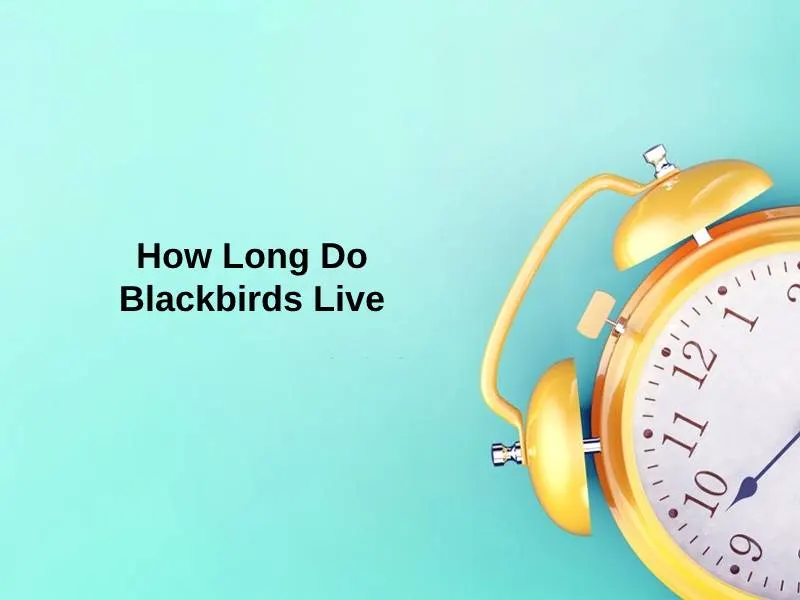Exact Answer: 3 – 4 Years
Blackbirds, as their name suggests, are entirely black. The scientific name of the blackbird is Turdus merula. This bird can be spotted in the UK (United Kingdom) gardens, woodlands, grasslands, and also in certain parts of Scotland.
It is extremely easy to spot due to its eye-catching black color. A blackbird nesting around or near one’s house is said to be a sign of good fortune according to some ancient folklore.
Although these birds have the name blackbird, females are dark brown. Both male and female blackbirds can be differentiated from each other by observing the color of their beaks. Females have a brownish yellow colored beak which is duller in comparison to the bright yellow colored beaks in male blackbirds.

How Long Do Blackbirds Live?
Blackbirds are one of those species of birds that are unable to survive for a very long time and possess a shorter life span. These birds do not have a large life expectancy and mainly live for less than 5 years.
The average life span of a blackbird is about 3 – 4 years. This is mainly because they easily become victims of wildlife attacks. Blackbirds frequently encounter attacks and threats from both animals and birds that belong to other species.
However, this cannot be generalized for all blackbirds in existence as some have notably lived for many years. The largest lifespan of a blackbird to date is about 20 years. Hence, even after having an average lifespan of 3 – 4 years, the duration for which the blackbird can survive will depend on the environment the blackbird is living in, the existence of predators in that region, the wildlife situation of that place, etc.
Blackbirds are low-flying birds and thus, constantly experience attacks from other predatory high-flying birds in the same territory. Thus, it is observed that blackbirds do not live long lives.
| Types | Lifespan |
| Common blackbird | 2 – 4 years |
| Common starling | 2 – 3 years |
Why Do Blackbirds Live This Long?
Blackbirds can be migratory, either partially or fully, or residents to a particular location. They belong to the bird family of Turdidae having genus Turdus. The common blackbird is found in the UK but they are approximately sixty-five more species of blackbirds in existence.
These birds fly at an elevation of 1000 m to 2000 m above the ground depending upon the place they are living in. Depending on the availability of food in a particular place these birds decide their place of stay. As the winter approaches, if the food is insufficient in the place blackbirds are currently living, they migrate to a place where they can find food and survive without any hassle.
The breeding period is of crucial importance to keep the population of blackbirds stable and it begins from March and can last till the end of July. These birds are not extremely aggressive and thus become victims of predatory dominating birds.
Thus, if the environmental condition where the blackbird is living is unfavorable, it would naturally have a short lifespan. But if the conditions are suitable for the well-being of birds or if they are kept in captivity, even blackbirds having an average lifespan of 3 to 4 years could live up to 20 years.
Conclusion
The lifespan of the blackbird hugely depends on the environment in which it is surviving. Generally, the blackbirds live only for about 3 to 4 years but exceptions are always there. One of the main reasons short lifespan of blackbirds is the fact that they are terrorized by predators which prevent them from living a long life.
Thus, if blackbirds are in an environment where there is no major threat to them by other animals and birds, blackbirds too can live a long and healthy life, but this is a rarity. Few male and female blackbirds are known for living about 15 to 20 years. Thus, ultimately, the wildlife situation in the environment of the blackbird would determine its life expectancy.